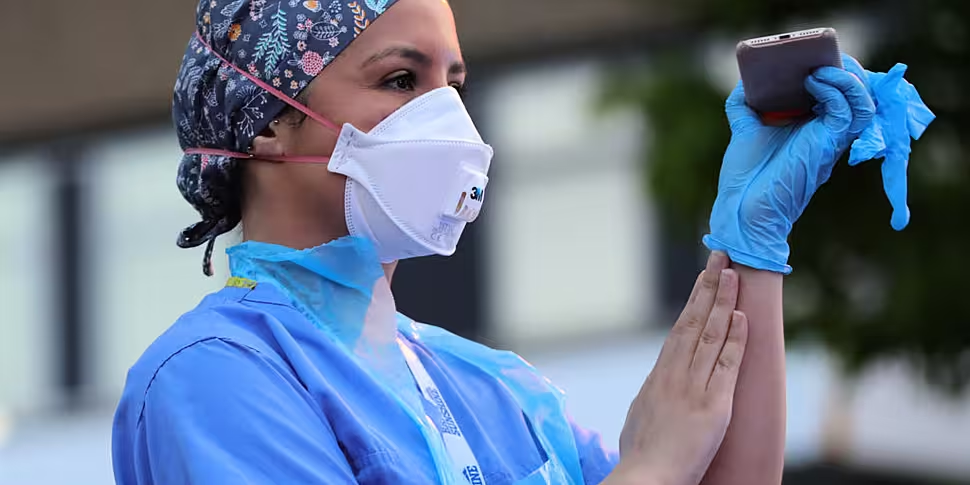The World Health Organisation is urging people to support health workers who have been battling the coronavirus for most of the year.
It comes as the global death toll from the virus officially passed one million, according to Johns Hopkins University in the US.
In Ireland, the acting Chief Medical Officer Dr Ronan Glynn said he is particularly concerned about “fast increasing" coronavirus trends in a number of counties, including Cork, Galway, Monaghan and Roscommon.
On Newstalk Breakfast this morning, World Health Organisation (WHO) spokesperson Margaret Harris said Ireland’s health workers have “learned a great deal” about treating the virus in recent months.
“Your medical, nursing staff and other frontline workers are now experts in dealing with this disease but they have also been working all year,” he said.
“They have been fighting for people’s lives since this first arrived at the beginning of the year so now it is a time when all of us really have to do our utmost to suppress transmission and keep that pressure off the health system.”
Deaths
She warned that Ireland’s rising case numbers will soon translate into a rising death toll.
“The medical and nursing staff are much more experienced and people themselves are more aware of whether they have the illness, when to come in and what to do,” she said.
“We also have some treatments now that are not specifically for killing the virus but can be used to stop the severe effects of the disease if you identify people early and if you know who is going to develop that particular effect of the illness.
“But the deaths will sadly rise as transmission rises in communities and as more people who are vulnerable are affected.
“It is critical to protect people who are vulnerable form transmission and that means those of us who are less vulnerable need to ensure that we do all the things to prevent that transmission, such as physical distancing.”
"Very grim milestone"
Dr Harris said the one-million death toll is “certainly, a very grim milestone” and noted that each one of those deaths was someone’s child, brother or sister.
“We don’t talk about waves,” she said. “We have a continuing, large pandemic.
“Much of it still driven by the very large outbreaks in the US, Brazil and other Latin American countries but also, the enormous outbreak in India.
“But in Europe we are seeing upticks in many countries and we are now seeing larger numbers of people being admitted to hospital so there is big concern with the Northern Hemisphere winter coming in, because other illnesses always rise during that period so hospital capacity could be really, really stretched.”
The WHO spokesperson noted that lockdowns “really are a last resort” and said the best way to reduce retransmission is to observe social distancing and hygiene.
“The social and economic price [of lockdown] is very, very high and also, the message to people is not to continue doing the things to stop transmission,” she said.
“It ends up being we go into lockdown and then go back to normal and then we go into lockdown and then go back to normal. That doesn’t work.”
You can listen back here:









